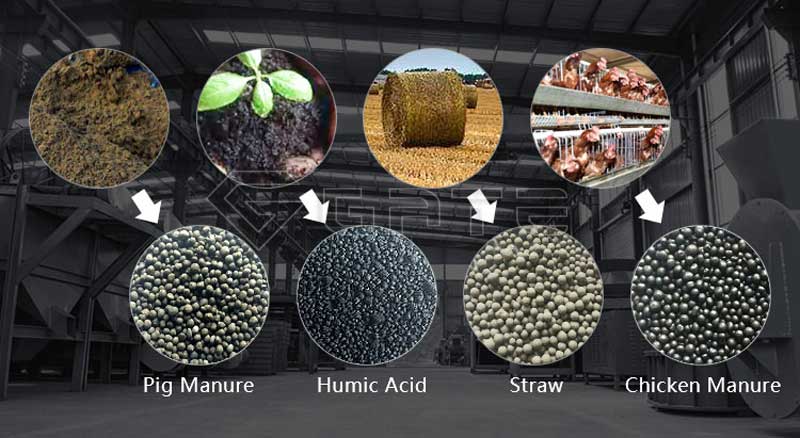what is the difference between each type organic fertilizer?
Organic fertilizer: mainly refers to a variety of animals and plants, after a certain period of time fermented and fermented fertilizer (including processed rapeseed cake, with no smell).
Organic fertilizer contains a large amount of biological substances, animal and plant residues, excreta, biological waste and other substances. The application of organic fertilizer can not only provide comprehensive nutrition for crops, but also has long fertilizer effect, which can increase and update soil organic matter, promote microbial reproduction, and improve soil physical and chemical chemistry. Nature and biological activity are the main sources of nutrients for green food production.
 Crop Straw Crop straw is one of the important organic fertilizers. The nutrients necessary for crop straw to contain crops are N, P, K, Ca, s and so on. Under suitable conditions, through the action of soil microorganisms, these elements are mineralized and returned to the soil for absorption and utilization.
Crop Straw Crop straw is one of the important organic fertilizers. The nutrients necessary for crop straw to contain crops are N, P, K, Ca, s and so on. Under suitable conditions, through the action of soil microorganisms, these elements are mineralized and returned to the soil for absorption and utilization.
The completely organic fertilizer production line including: fertilizer groove compost turner, fertilizer feeding hopper, fertilizer half-wet material crusher,fertilizer horizontal mixer, organic fertilizer granulator, fertilizer drum dryer,fertilizer rotary cooler, fertilizer screener machine,fertilizer coating machine,fertilizer automatic packing machine, belt conveyor, etc.
Other type of organic fertilizer:
1. Composting organic fertilizer made up of various types of orange stalks, fallen leaves, grasses, animal and plant residues, human and animal waste, and a small amount of soil.
2. The raw materials used in the manure are basically the same as those in the compost, but they are fermented under flooding conditions.
3. Manure refers to the fertilizer produced by the excrement of pigs, cattle, horses, sheep, chickens, ducks and other livestock and poultry and straw litter.
4. Biogas Fertilizer In a sealed biogas tank, organic matter is decomposed to produce by-products of biogas, including biogas liquid and residue.
5. Mud fertilizer Uncontaminated river mud, pond mud, ditch mud, port mud, lake mud, etc.
Now, with the continuous development of science and technology, through the artificial pure culture technology of beneficial bacteria, scientific refining can produce a variety of different types of bio-organic fertilizer, which can improve soil quality, reduce environmental pollution, increase fertilizer. Efficacy. Bio-organic fertilizer will be the main development trend of fertilizer for agricultural production in the future.

















Leave a Messages